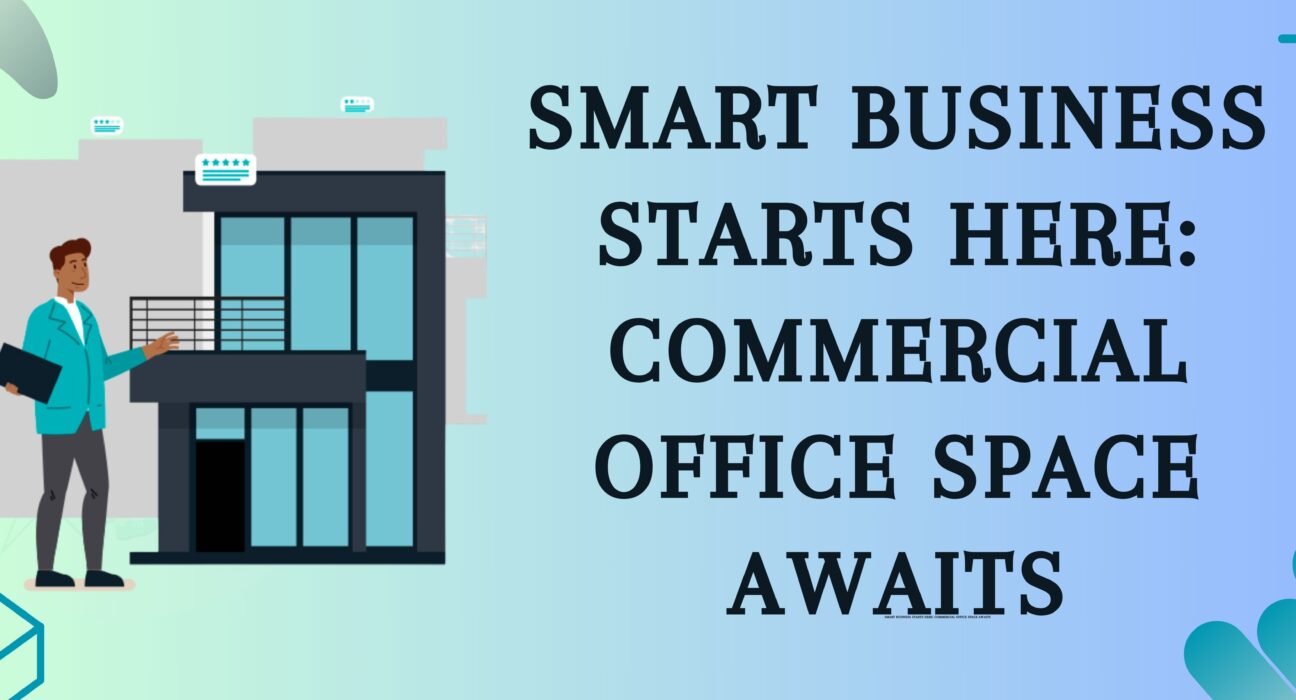Two years back, the pandemic changed everything, and most people started to work from home. Since then, many IT companies haven’t resumed work from office culture. Now, it’s evident worldwide that many businesses can be conducted even while working from home, emphasizing that there is no need for every business to thrive only by renting commercial office space in Calgary. But that’s not wholly true. This article talks about commercial real estate, which is the place used for offices or shops. Even though fewer people need regular offices now, there’s still demand for places like warehouses, storage, and shops.
We will also discuss that the commercial real estate industry is changing quickly.
How might workspaces evolve in the future?
With people returning to their commercial offices, the future for that kind of business property is promising. Little remote work as organizations gear up for a brighter future. Nonetheless, most organizations will primarily prioritize ensuring the safety of workers as well as creating conducive facilities at workstations.
However, every organization needs to do its research and testing to discover the right methods that are most suitable for it. By testing shared working space, organizations can cut down on business expenses. In most cases, in this work environment utilities, custodian services, and reception among the members manage them. Several factors have made co-working spaces increasingly relevant for entrepreneurs, freelancers, and even large companies over time. That’s why it is so important to rent a commercial office space, as they have multiple advantages that will speed up your business’s expansion process.
Benefits of leasing a commercial office space
Cost
One of the main advantages of leasing commercial office space is that there are many important issues to consider first, but one of them is cost. The primary advantage is that it saves costs as compared to buying an office space. Businesses lease an office and have only one expense which is rent or other services offered by the real estate owners.
Leasing reduces some of the operational costs as tenants share in them. The tenants share the costs of maintenance, utilities, and security in a commercial building where different businesses occupy different spaces. Sharing operational costs in this manner can greatly lower individual leases’ costs, thus allowing companies, especially start-ups and SMEs, to save money.
Leasing is a useful option for start-ups and SMEs, which might not want to pay huge sums of money at once when acquiring commercial real estate. Such companies may not have grown past their infancy period since the preservation of capital is very important for progress and survival. They can lease high-quality office space, minimizing the initial monetary commitment and allowing these funds to be used in other areas of strategic growth for their business.
Additionally, commercial office leaseholders usually have an option of choosing between a wide array of lengthy periods for the lease. Scalability is also possible through the negotiation of the lease term that matches business growth projections. As a result, this flexibility becomes an additional benefit, especially for growing enterprises whose future spatial needs are uncertain.
Maintenance
Buying office space involves more than simply purchasing a location as it comes with the obligations of maintaining the whole facility. These are activities that include supervision of repair and maintenance, structural integrity, utility services, and overall upkeep. Such extent of such a responsibility could be time-consuming and might also involve heavy financial costs.
When you own an office space, in essence, your job as a landlord takes over the main work of your company. Though this issue may seem less important, it has the potential to negatively affect your business. This is because some of the time and money that is supposed to be used in undertaking strategic initiatives, customer services, or the production of new goods instead goes into the complications of handling properties.
However, an office lease gives a unique advantage of repairs and maintenance. Generally, if an organization has rented the premises, it is often the management team of the facility manager or even the owner who is responsible for day-to-day management and upkeep. As a result, as a tenant, you do not have to worry about property-related activities.
Saving time is only part of the benefit associated with not having to deal with any maintenance issues. In addition, it gives you foresight in terms of budgeting and financial planning. In a typical lease, when you lease for an office space, the rent would be fixed, while most of the time, the maintenance cost may be included or stated clearly in your contract. As such, this will result in proper budgeting hence avoiding unnecessary costs that accrue during property maintenance.
Professional facility management is an added advantage as the condition of the property is maintained to industry standards, which could improve the working environment for your enterprise. This also implies that for unforeseen problems like breakdowns and repairs, the responsibility lies within homeowners and managers, respectively.
Upgradation, Risk & Tax saving
Improving the workspace of a leased office is prudent and has many important benefits as your company develops. Lease is your best option since it gives you the liberty of adjustment without denting your purse.
That’s, for instance, when your business grows, and it is easy to adopt additional employees and change what suits your budget. Such flexibility can be invaluable for allowing you to start with a series of small amendments before progressing as needed with more space. It is a pragmatic way of making sure that you don’t have too much space in the beginning but can expand it as your business calls for it.
Selecting a large center at the initial stage eases pressure toward expansion without additional space limitations. Updating in steps helps you adapt gradually and align changes to the new needs of your changing business environment. As the dynamic demands of your business change, this capability enables you to scale either in an upward or downward direction, thus reducing costs and maximizing the use of space.
Practical risk mitigation for a lease of premises used in commerce, too. Instead of purchasing outright, you can protect your business by taking the beginning approach for a security deposit and monthly rent. This applies particularly at the initial stages where scarcity of financial resources tends to prevail. Through the gradual transition from renting to possible future acquisitions, an organization’s commitment is paced in such a manner that it avoids being exposed to unexpected contingencies.
Furthermore, leasing a commercial space results in real tax savings for the tenants. The act of setting off multiple costs, including insurance, utilities, maintenance, and leases, has a real monetary benefit that can be quantified. These deductions could be essential in contributing towards your financial goal.







